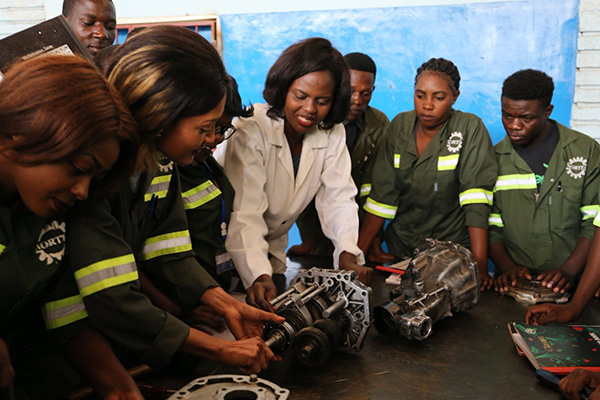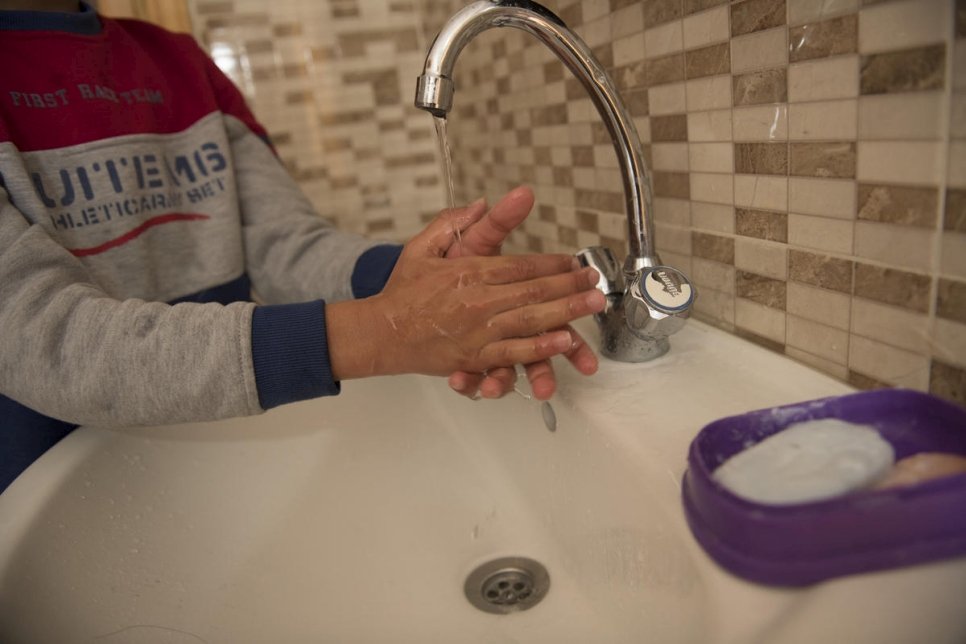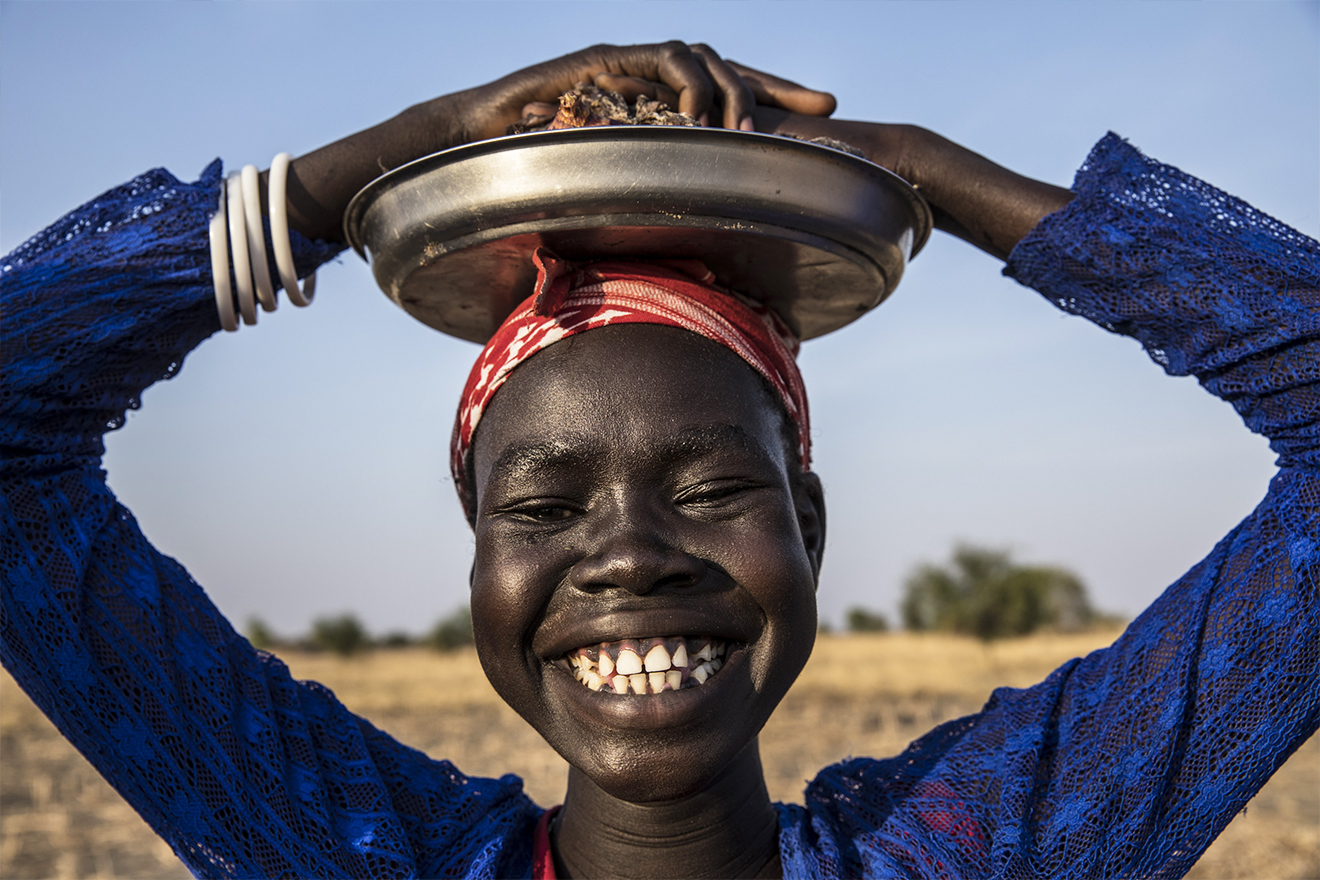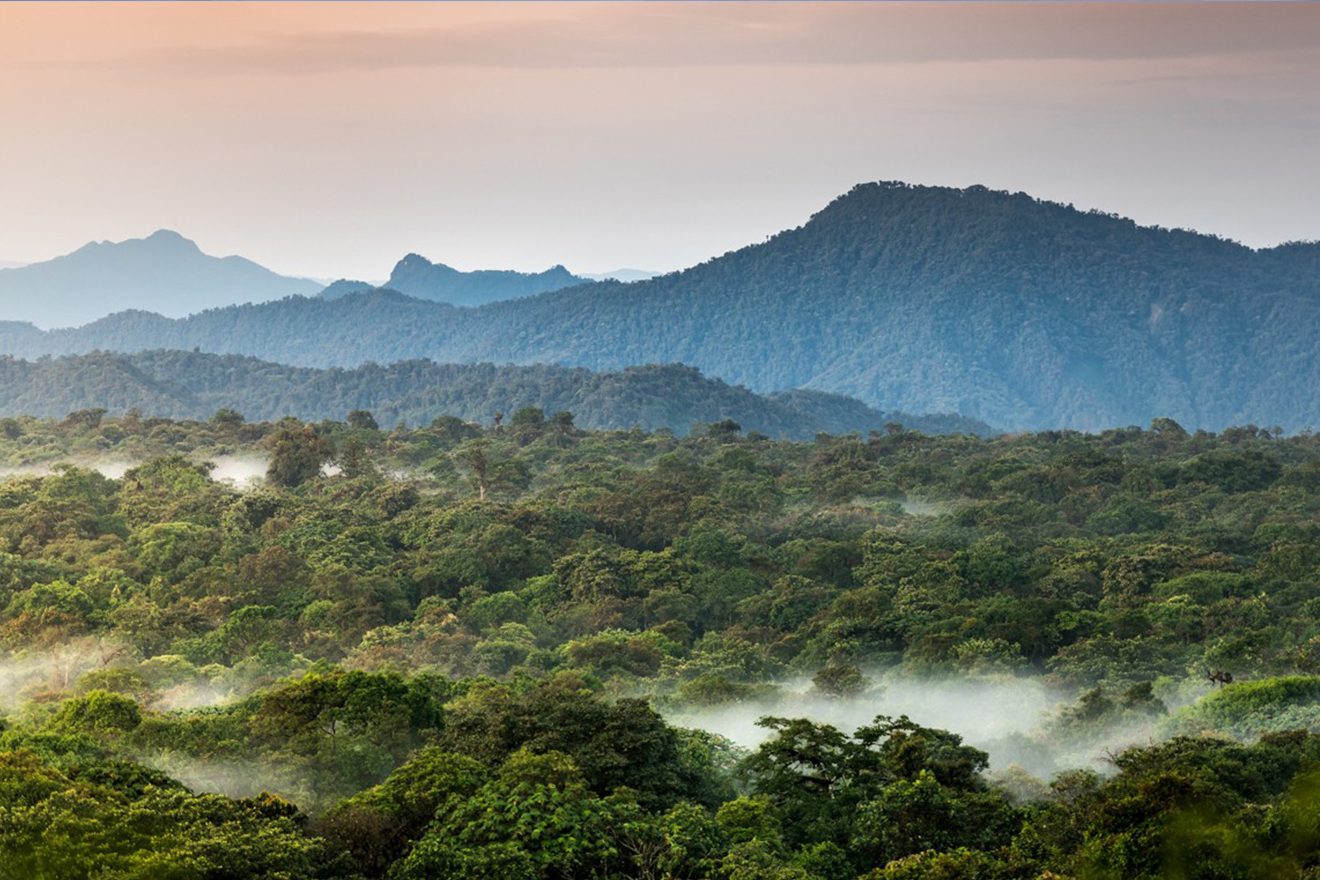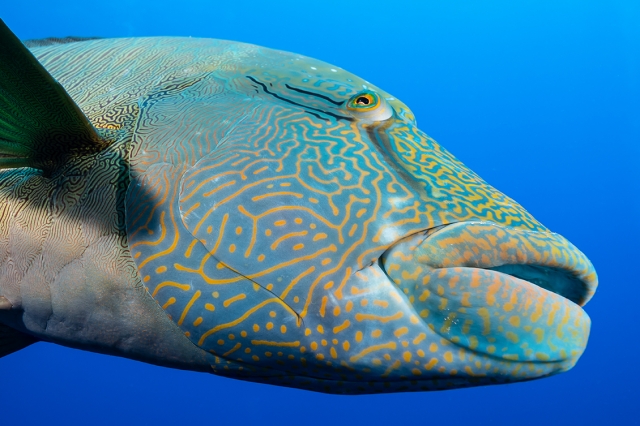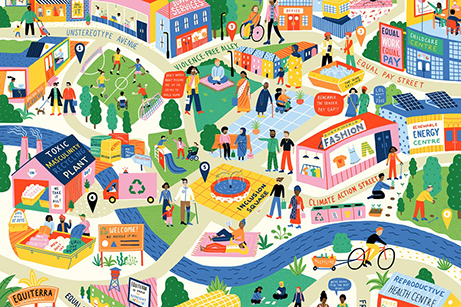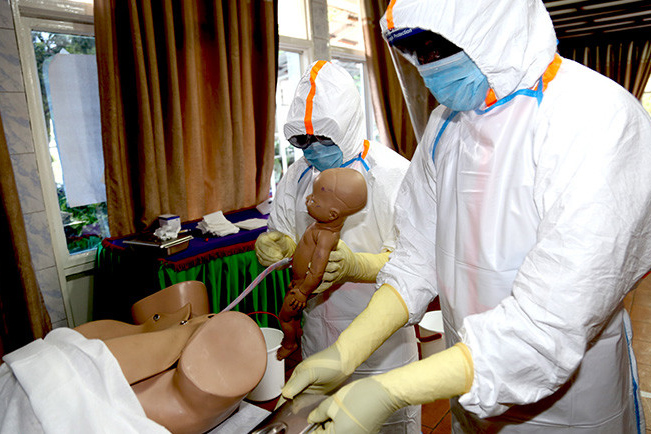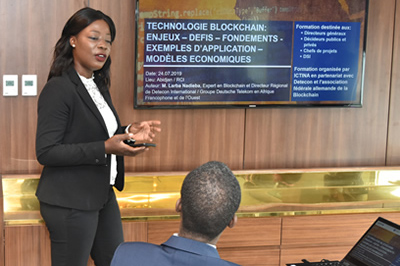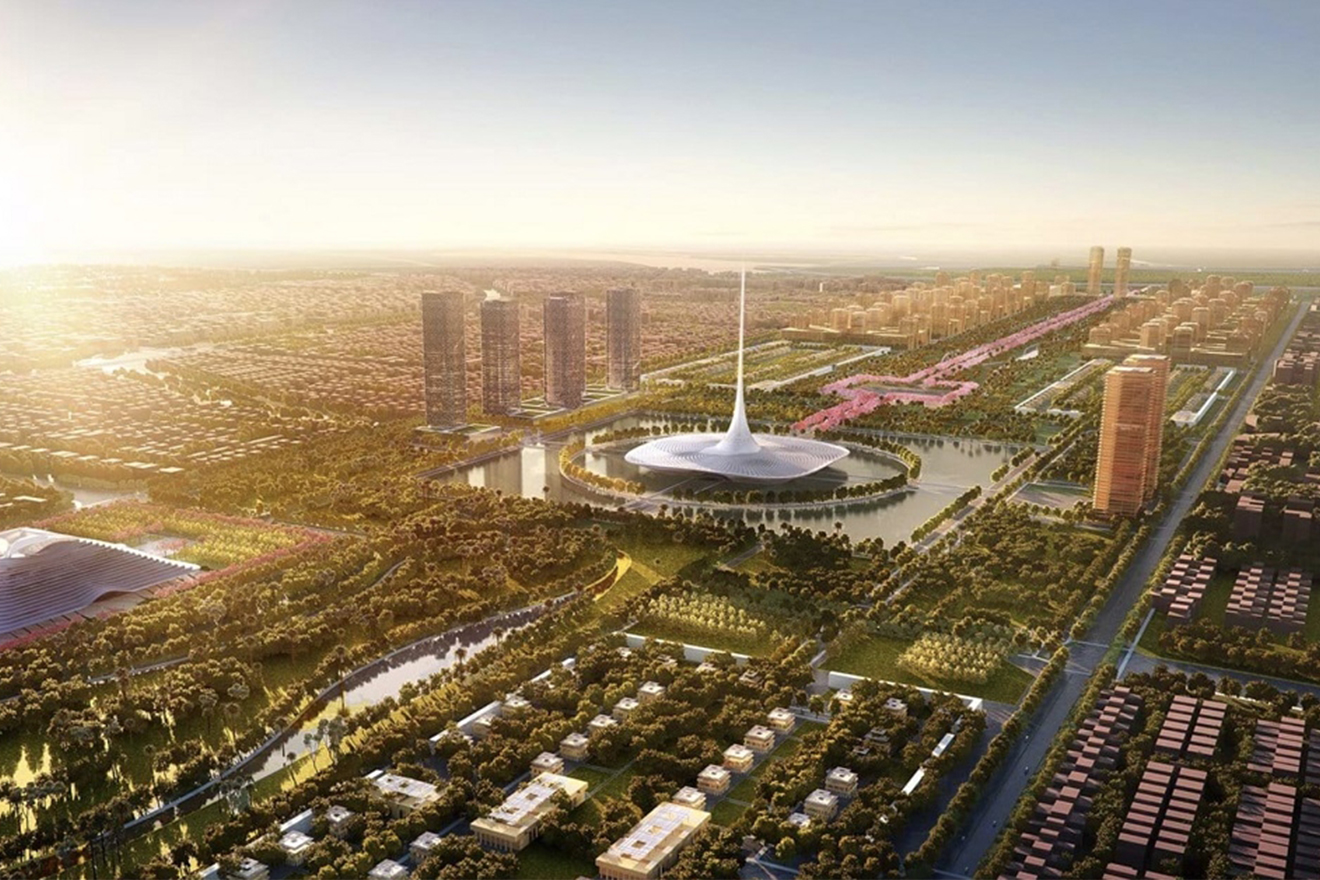Young female trainees in Zambia's Heavy Equipment Repair training programme smash gender stereotypes by showing their motivation and encouraging female participation.
If ever we needed reminding that we live in an interconnected world, the novel coronavirus has brought that home. No country can tackle this alone, no part of our societies can be disregarded if we are to effectively rise to this global challenge. The coming weeks and months will challenge national crisis planning and civil protection systems, and will certainly expose shortcomings in sanitation, housing and other factors that shape health outcomes. Our response to this epidemic must encompass, and in fact, focus on, those whom society often neglects or relegates to a lesser status. Otherwise, it will fail.
Coral reef ecosystems cover just 0.1 per cent of the ocean, yet they support 25 per cent of its life and the lives of half a billion people on land. In the face of climate change and destructive human activities like overfishing and pollution, it is important to understand the interconnectedness of organisms. Protecting coral reefs means protecting the ocean’s variety of life, which in turn means protecting our own lives as well. Experience a coral reef through the eyes of a sea turtle to understand its unique role in maintaining nature’s balance.
Corpulent, thick-lipped, with eyes set off as if by smudged mascara. Head like a delicately patterned anvil. Body a shimmering blue. Known prosaically as the humphead wrasse, and more majestically as the Napoleon, the fish may appear either stunning or endearingly misshapen. Still: neither its intriguing appearance, nor its role in sustaining marine ecosystems (it preys on toxic sea animals and maintains the health of the coral reef) has kept the Napoleon safe. A rampant appetite for what is seen as a culinary delicacy in East Asia has badly dented stocks. Enter capture-based aquaculture.
BREAKING NEWS: We found a country that has achieved gender equality! In Equiterra all people have equal rights and opportunities, regardless of their gender. Join us for a tour of its bustling capital!
UNFPA is working with WHO and the Ministry of Public Health in the Democratic Republic of the Congo, which remains in the grip of the world’s second largest Ebola epidemic on record, to strengthen infection prevention and control measures in reproductive health facilities in the affected areas.
Christelle Assirou, a serial entrepreneur from Côte d’Ivoire, is revolutionizing e-commerce in her country and beyond. She was among 19 participants in UNCTAD’s eTrade for Women initiative’s first masterclass in Africa in Abidjan, Côte d’Ivoire.
More than 935 million* workers have jobs that don't match their educational level. In low-income countries, employment is concentrated in low-skilled occupations requiring a lesser level of education and workers are more likely to be under-educated for their jobs. In high-income countries employment is concentrated more in occupations requiring higher skill levels, and workers’ under-education is less common. In high-income countries almost all workers in low-skilled jobs are over-educated. (*actual global figures are probably higher since the ILOSTAT data covers 114 countries).
UN High Commissioner for Refugees Filippo Grandi called for urgent action to address the increasingly desperate situation of refugees and migrants in reception centres in the Aegean islands. “Conditions on the islands are shocking and shameful,” said Grandi. “Greece – with European support – has to act now to deal with an untenable situation, while the longer-term measures are put in place.”
Just 10 countries account for 90% of all global patents, and 70% of all exports, directly associated with the advanced digital production (ADP) technologies driving the Fourth Industrial Revolution. UNIDO’s Industrial Development Report 2020 argues that these new technologies are at the core of successful sustainable industrial development. It is calling for immediate action to support developing countries in adopting ADP technological breakthroughs.
The United Nations Environment Programme (UNEP), the United Nations Framework Convention on Climate Change secretariat, and the Commonwealth Secretariat, in collaboration with several United Nations entities, have developed a law and climate change toolkit to promote climate-smart urbanization.
UNICEF answers your questions on how to protect yourself and your children. Find out the answers to these and more:
- How does the COVID-19 virus spread?
- What are the symptoms?
- How can I avoid the risk of infection?

